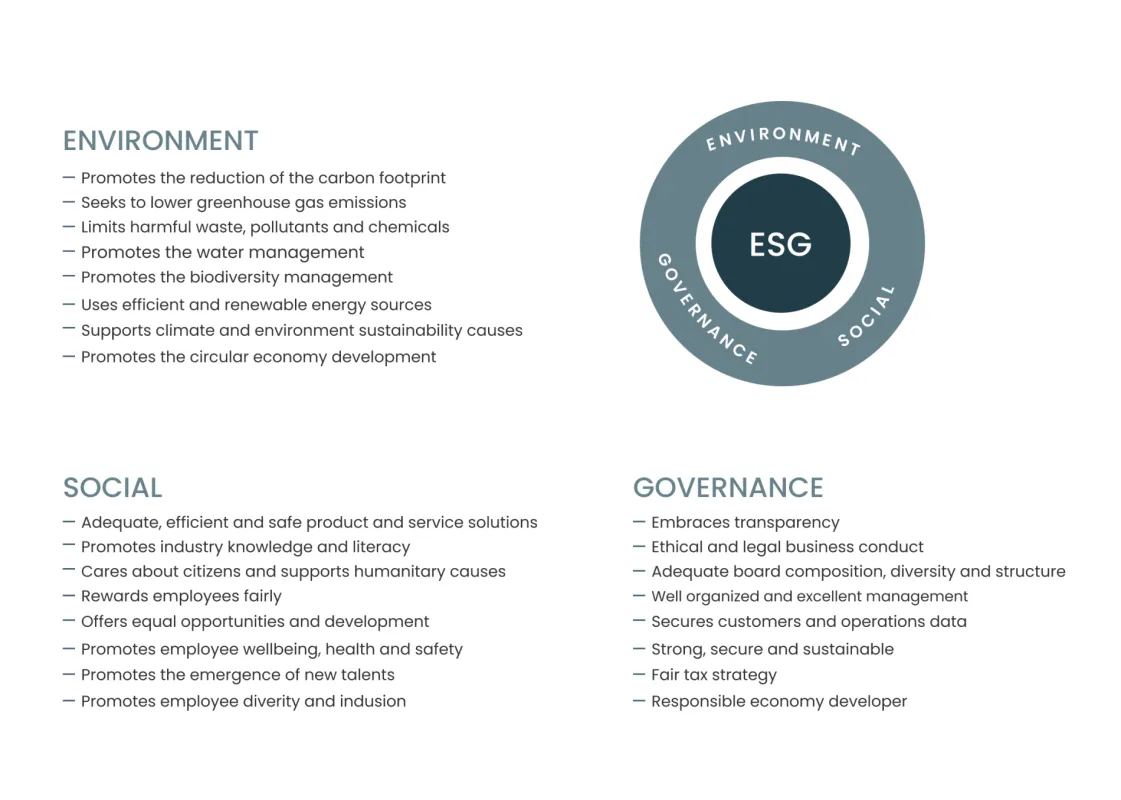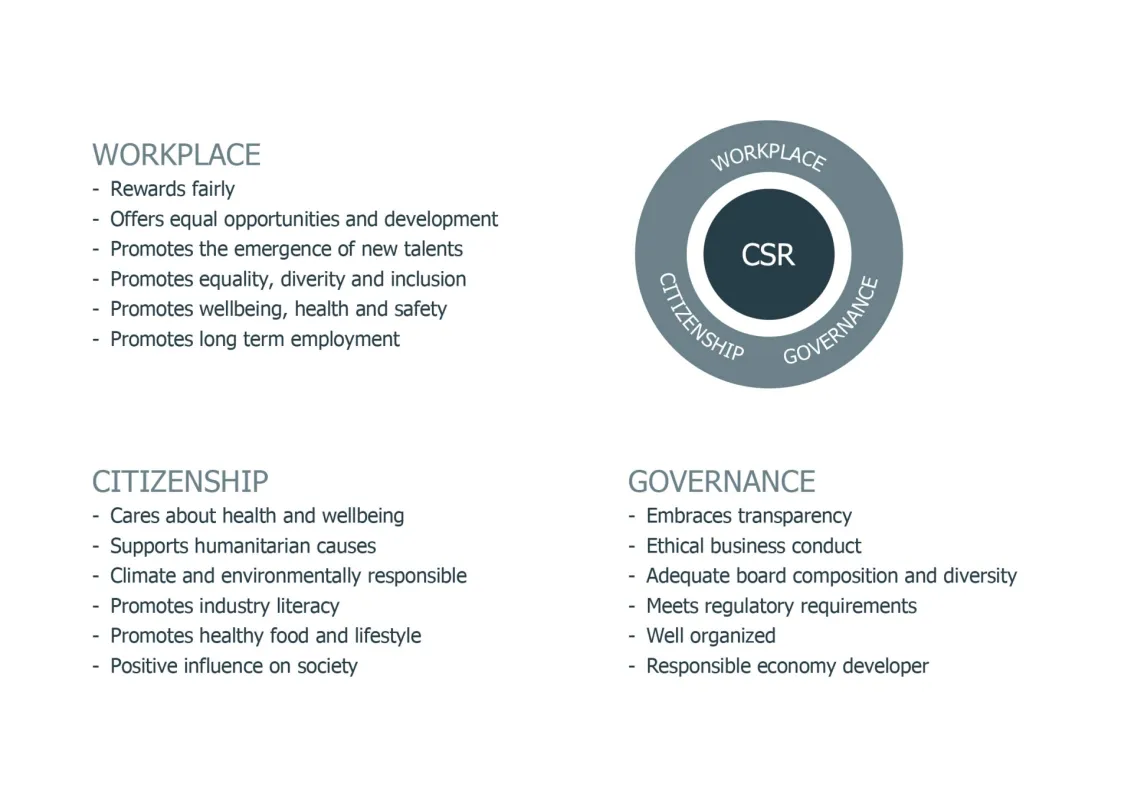Brand Sustainability
A brand and business due diligence tool which integrates an audit process and a consultancy recommendations pack on product, service, packaging, price, innovation, supply chain (purchase, production, logistics and customer care), safety, health, environment, citizenship, organization, staff, workplace, leadership, performance and value add.
ESG – Environment Social Governance
ESG emerges as an evolution of the traditional concept of corporate social responsibility (CSR) and aims to assess the extent to which an organisation works towards social objectives that go beyond the role of maximising profits on behalf of shareholders. Typically, the ESG management perspective includes working towards a certain set of environmental, social (both from an external and internal perspective - citizenship and work environment) and corporate governance objectives.
The most prominent global movement in this regard is the adoption of the SDGs (sustainable Development Goals) by the United Nations in 2015, and the ESG concept was first popularly used in a 2004 report entitled "Who Cares Wins", which was a joint initiative of financial institutions at the invitation of the UN.
CSR – Corporate Social Responsibility
Corporate Social Responsabilty is an internal organisational policy or a corporate thic strategy. Since the beginning of the 21th Century, it has moved considerably from voluntary decisions at the level of individual organisations, to mandatory schemes at regional, national and even transnational levels. Considered at the organisational level, it must align with and be integrated into a business model to be successful.

